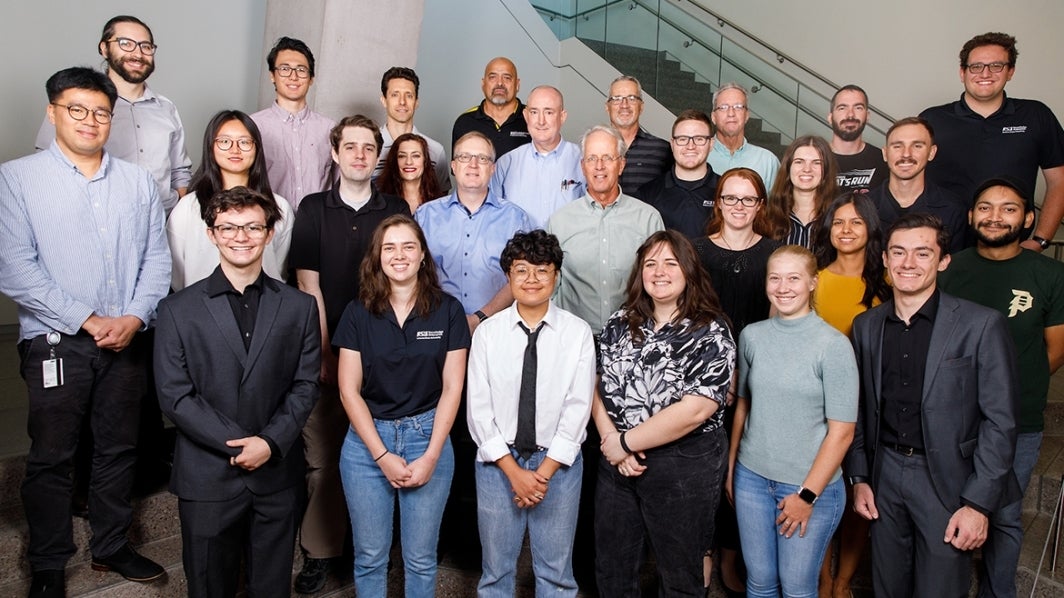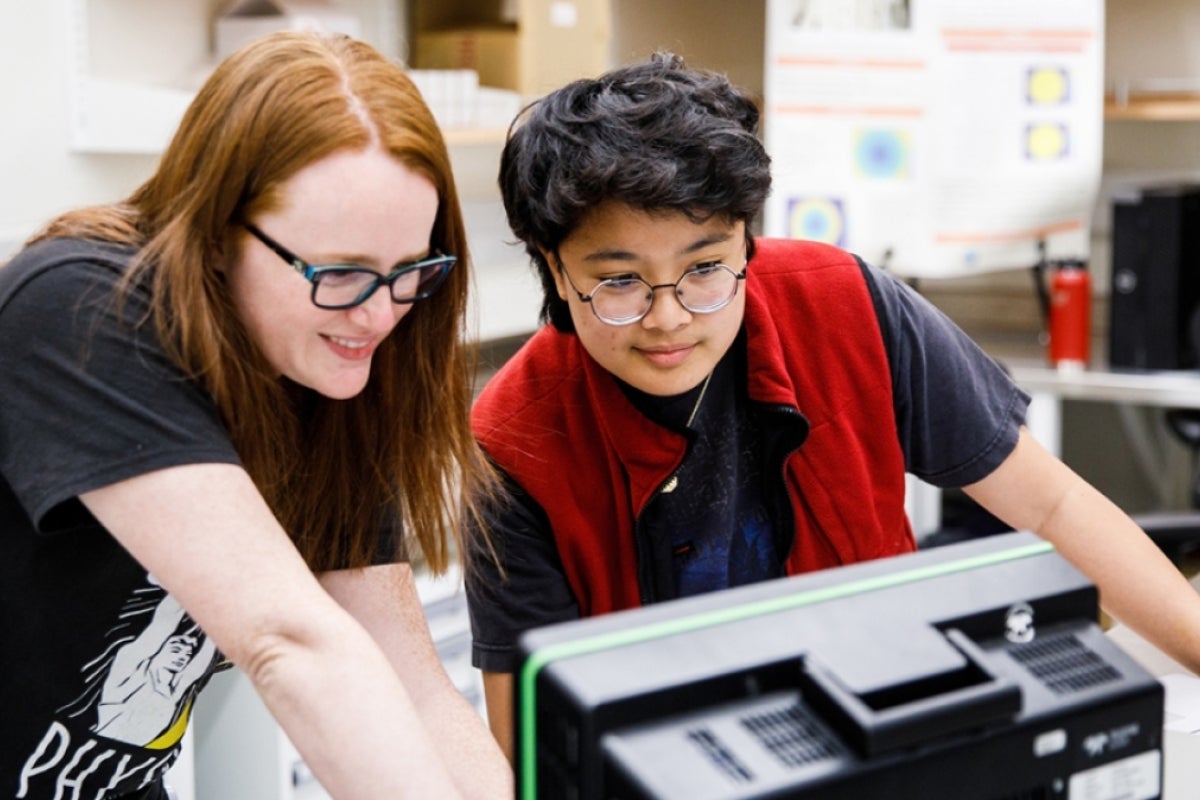From the stage to the lab: How master’s student balances life

Trixia Dela Rosa is graduating with her master’s degree in biomedical engineering in the Ira A. Fulton Schools of Engineering.
Editor’s note: This story is part of a series of profiles of notable spring 2023 graduates.
When people think of being in a band, an interest in engineering does not often come to mind. Trixia Dela Rosa proves that idea wrong, splitting her time between her band and the lab.
“Something that surprised me is, half the time when I ask local ASU bands what their majors are, it's engineering. Seventy-five percent of my band, Ruby Shore, is made of engineering alumni,” said Dela Rosa, who is graduating with her master’s degree in biomedical engineering in the Ira A. Fulton Schools of Engineering.
“I've learned that, while the STEM field is so logical and analytical, it's also incredibly creative. It's important to be well-rounded as an individual because life itself is not so black and white.”
During her time at ASU, Dela Rosa learned the importance of balancing work and school with hobbies. Since Trixia formed her band Ruby Shore, she has had the opportunity to perform for over 10,000 students at ASU’s annual spring music festival, Devilpalooza. She credits her faculty mentor Bill Graves for teaching her the importance of her work-life balance.
“My research lab's principal investigator, Professor William Graves, loves to bird-watch, bike and garden. Even though he is a top accelerator scientist, he still takes time to invest in things he enjoys outside of his field. I strive to do the same,” said Dela Rosa.
Following graduation, Dela Rosa plans on moving to California to start her biomedical engineering career in the cardiovascular device industry at Edwards Lifesciences.
Read more about Dela Rosa's experience at ASU below.
Question: What was your “aha” moment when you realized you wanted to study the field you majored in?
Answer: I can be hugely indecisive. ... Even choosing where to go for dinner sometimes is difficult. This also leads me to wanting to try anything and everything in my hobbies and everyday life. Biomedical engineering is that perfect "jack of all trades" perspective for someone that doesn't want to specialize in one specific engineering type. When I first heard about this interdisciplinary major and all the exciting developments coming out of the field, I knew I wanted to be part of it.
Q: Why did you choose ASU?
A: I wanted to save as much money as possible going to college, so staying in-state made the most sense. I also always knew growing up that I would go into engineering, and ASU was known to have a great engineering program, so it was an easy choice over the other public state universities.
Q: What’s the best piece of advice you’d give to those still in school?
A: I cannot stress this enough, but ask for help! I could not have made it through college without attending all the office hours and study sessions that I did. Even if professors don't seem approachable at first, the office hours are there for you and they really do want to help you succeed. I've had many crazed, late nights on campus with my peers just working on homework and running to Dutch Bros. Don't pass up on opportunities like these — they're often some of the best memories you'll have from college.
Q: What was your favorite spot on campus, whether for studying, meeting friends or just thinking about life?
A: The Social Sciences courtyard. Everyone always hypes up the Secret Garden, but I think this is the real hidden gem, right in the middle of campus with the best greenery. It's a great place to unwind and read, especially since the plants and canopy guarantee cooler temps year-round.
Q: If someone gave you $40 million to solve one problem on our planet, what would you tackle?
A: One issue I would tackle is homelessness. Having basic necessities (food, water, shelter) sets the foundation for the rest of the things in your life. I feel very privileged that I had a good home life to set me up for college, but I know there are millions and millions of others without the access to those necessities.
More Science and technology

Breakthrough copper alloy achieves unprecedented high-temperature performance
A team of researchers from Arizona State University, the U.S. Army Research Laboratory, Lehigh University and Louisiana State…

4 ASU researchers named senior members of the National Academy of Inventors
The National Academy of Inventors recently named four Arizona State University researchers as senior members to the prestigious…

Transforming Arizona’s highways for a smoother drive
Imagine you’re driving down a smooth stretch of road. Your tires have firm traction. There are no potholes you need to swerve to…



